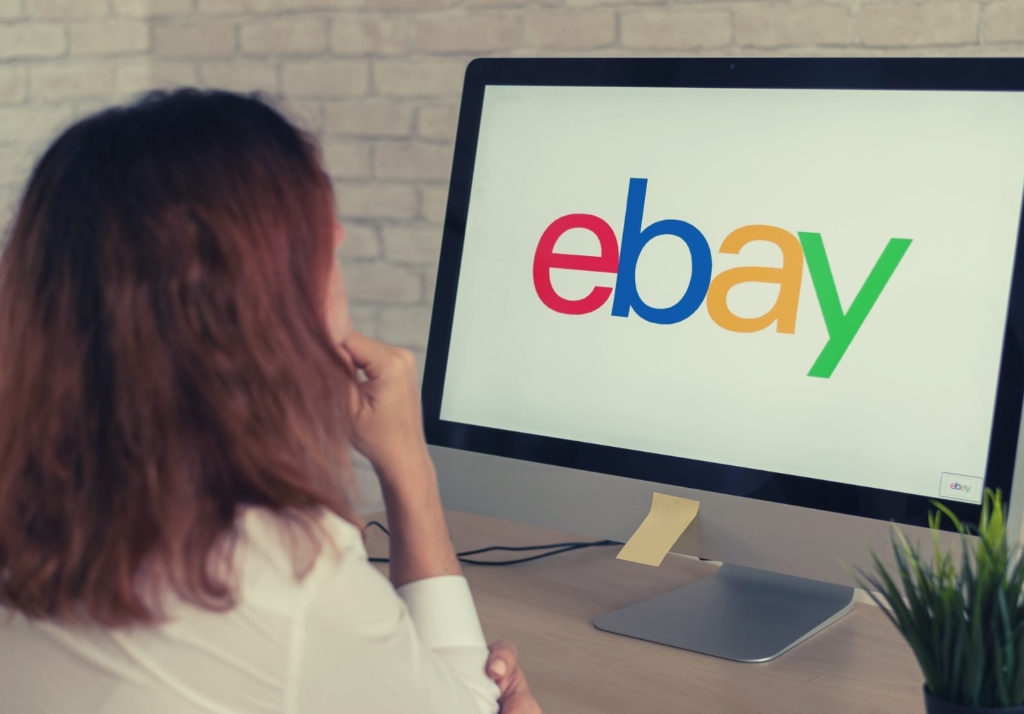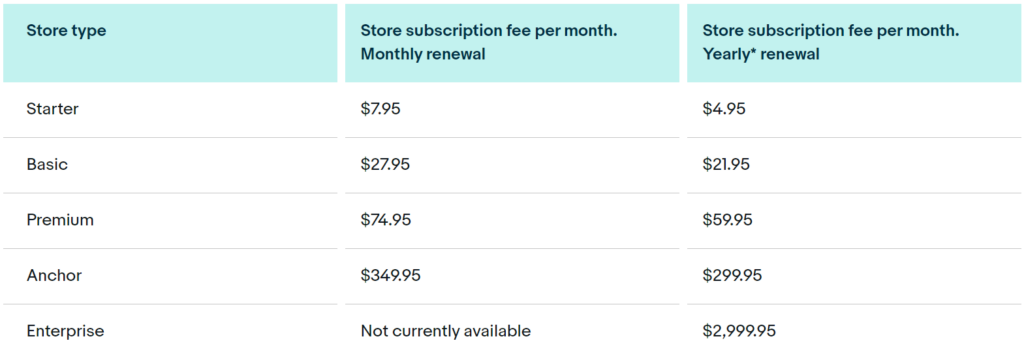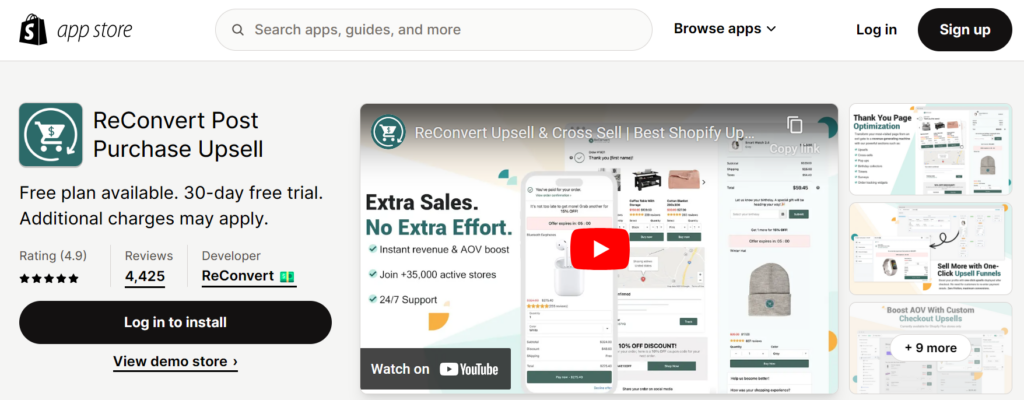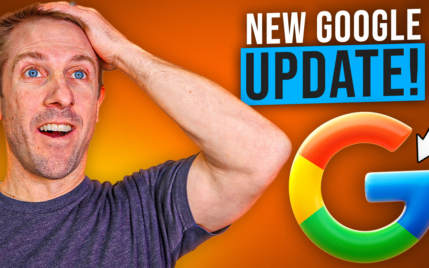eBay vs Shopify: Which Is Better For Online Selling?

When you buy something through one of the links on our site, we may earn an affiliate commission.
You've been evaluating eBay vs Shopify for your e-commerce store and wondering which one is best. There's a lot to consider, and this is an important decision for your business.
On one hand, Shopify is a well-known platform for new and seasoned e-commerce stores. It comes with a lot of tools and features you can add to the store to help manage customer experience, email marketing, advertising, and more.
eBay is a great option for independent sellers and is well-known for selling used and vintage goods. This is perfect for sellers who need a quick option for selling goods that don't require the maintenance of an entire e-commerce store.
In this article, we'll take a look at both options to see which platform is the best based on features, pricing, and more.
Let's get into it!
Contents
Overview: eBay vs Shopify

Let's explore the similarities and differences between these two e-commerce platforms.
eBay vs Shopify: Similarities and Differences
Let's take a look at some of the similarities and differences between eBay and Shopify.
Similarities
- E-commerce platforms
- User-friendly
- Inventory management
- Global reach
- Third-party integrations.
E-commerce Platforms
When looking at eBay vs Shopify, we know they're both e-commerce platforms. Users can open an eBay account or Shopify store and sell their goods to the public in an e-commerce setting.
User-Friendly
Next, both platforms are user-friendly. While they have different setups, you'll find it equally as easy to register a seller account on eBay as setting up a Shopify store.
From creating product listings to setting prices and publishing products for sale, it's a pretty easy-to-understand layout across both eBay and Shopify platforms.
Inventory Management
The same is true for inventory management across eBay and Shopify. On eBay, you can set inventory for each variation of the product you're selling, and the same exists on Shopify, making it easy to organize your inventory and avoid overselling.
Global Reach
Both platforms offer the opportunity for sellers to reach a global audience and operate in international currencies. eBay is a global company connecting buyers and sellers together from all over the world and Shopify allows sellers to reach a global audience as well.
Third-Party Integrations
Lastly, third-party integrations are offered on both eBay and Shopify. These are the tools and plugins that can integrate with your store account, including social media, helping you improve productivity and operations, increase sales, and save time.
Differences
- Business model
- Store ownership
- Fees
- Target audience.
Now, let's look at the differences between eBay vs Shopify.
Business Model
We start with the business model. On eBay, it's a marketplace where individual sellers and businesses can sell products online whereas Shopify allows businesses to create and manage their online stores.
So, eBay will have you selling on their marketplace, and Shopify gives you the ability to create more of an individual presence on the internet in the form of an eCommerce store.
Store Ownership
Next, if we look at store ownership, with eBay sellers operating on their platform, there are limited customization options that would allow sellers to fully brand themselves to adopt the style and feel of their business.
On Shopify, the opposite is true. Sellers have full customization options on their Shopify store, allowing them to apply web themes, features, and custom code their store to fully match their brand.
Fees
The costs for eBay and Shopify are very different. eBay charges a listing fee and a final value fee. Shopify charges a monthly subscription for using the platform, plus extra costs for third-party tools or apps sellers are using from the Shopify Store Marketplace.
Target Audience
The target audiences between eBay vs Shopify are different. eBay is geared toward individuals and businesses that sell their products on the eBay marketplace. Shopify is for businesses to create and manage their e-commerce store.
eBay vs Shopify: Key Features

The key eCommerce features between eBay vs Shopify vary a lot. Check them out.
eBay Setup
The eBay setup involves:
- Registering for eBay as a seller
- Preparing and publishing product listings.
During the listing process, you'll have a chance to add extra optional features to your eBay listing like:
- Bold text
- Highlight
- Gallery plus
- Best offer.
Then, you can publish your eBay listing.
eBay has features like:
- Multiple listing options
- eBay stores
- International selling
- Seller Hub
- Promoted listings
- eBay mobile app
- Bulk listing tools.
What Are eBay Stores?

An eBay store gives you access to more tools to manage your eBay listings. You get discounted fees, more free listings, and store management and product promotion tools.
There are some products that just sell very well on eBay.
If you carry these goods, one of the best products to sell on eBay, having an eBay store may interest you.
You'll be able to name your eBay store, and eBay stores can be accessed and viewed by customers online as an eBay storefront. eBay stores are on subscription plans starting at $4.95/month. The five tiers are Starter, Basic, Premium, Anchor, and Enterprise.

Shopify Setup
For Shopify, you'll go through a process of setting up your Shopify store that involves:
- Creating a Shopify account
- Naming your Shopify store
- Customize your Shopify store
- Setting up and publishing your Shopify products
- Setting payment options, shipping, and taxes
- Launch.
Shopify's eCommerce features include:
- Storefront
- Web themes
- Shopify App Store for SEO and marketing tools, etc.
- Payment gateways
- Multichannel selling
- Product management
- Order management
- Shipping tools.
What Is Shopify Plus?

Shopify Plus gives you more support options and access to more of your online store's code for greater functionality. This is an alternative to having basic Shopify, but typically, only large enterprises may go with Shopify Plus instead of Shopify.
If you need fairly custom code and run a large enterprise operation, Shopify Plus may be a fit for your organization. Prices start at $2,000/month or a flat percentage of sales volume, whichever is greater.
eBay vs Shopify Setup Comparison
Looking at the differences in setup, you can see that the Shopify store setup is much more involved. There are more steps and more options available compared to eBay.
eBay can definitely be more of an extensive process, like setting up an eBay store or integrating any eBay e-commerce tools like eBay's bulk listing tools (formerly Selling Manager Pro).
But, comparing basic setup to basic setup across eBay vs Shopify, eBay is simpler.
User Experience
Now, let's compare the user experience of eBay vs Shopify.
How User-Friendly is eBay?
eBay offers a streamlined, user-friendly experience for both buyers and sellers.
You can find the “Sell” button at the very top navigation on eBay, and landing on that page will show you:
- The basics of selling on eBay
- Tips for creating a great product listing
- FAQ, and
- A product listing button to start the process.
eBay has designed a website that provides an inclusive experience, considering both buyers and sellers.
How User-Friendly is Shopify?
Shopify, like eBay, is user-friendly. It's navigation-friendly and easy to use the features and tools to build your eCommerce store.
They have drag-and-drop templates so you can position everything into the perfect place, along with built-in free or paid store themes that you can use for your business website.
And it's all based on no-code, so programming knowledge and coding skills aren't needed to build an online store with Shopify.
eBay vs Shopify User-Friendliness Comparison
They tie!
I'd say eBay and Shopify are both just as user-friendly. You can easily walk through the process and self-navigate through their platform to set up product listings and create your selling presence online.
There are tons of support options with both as well, in case additional guidance is needed.
Marketing
eBay and Shopify are quite different in terms of marketing.
With eBay, aside from doing your own organic or paid marketing, you can utilize their marketing services to pay for promoted listings on their marketplace.
This fast and easy process lets you promote your eBay listings for a flat fee upfront based on your listing.
For Shopify, pursuing any of Shopify's advertising or marketing apps from the Shopify App Store could enhance your marketing efforts while being mostly hands-off.

For example, ReConvert is for upselling and cross-selling, driving more sales for your store.
Jebbit is an app that creates quizzes your customers can take to help them find products in your store.
These are just a few examples of the many Shopify App Store apps you can use for marketing your Shopify store.
Going this route is an alternative to running paid ads on your own or utilizing organic marketing for traffic generation.
eBay vs Shopify Marketing Comparison
So, with eBay, there's generally one route for marketing through the marketplace: promoted listings.
While with Shopify, you can employ and activate any of their marketing apps to execute a marketing strategy for your store.
Fulfillment and Shipping
Lastly, let's look at the fulfillment and shipping process. With eBay, you sell and ship products to customers, and the actions you take on eBay will tell the buyer what stage in the fulfillment process they are at.
eBay acts as the middleman, updating the customer on the shipping process, including notifying them of when the shipment took place, providing tracking details, etc.
This is pretty much the same process with Shopify: a customer buys, you update the fulfillment and shipping process as it's happening, and the customer gets notifications along the way.
And with both, dropshipping is possible. eBay dropshipping and Shopify dropshipping are possible.
Is eBay Better Than Shopify?
It depends.
eBay is better than Shopify for:
- Being an instant marketplace where individual sellers and business sellers can go to sell their goods fast
- Selling used goods
- Auction-based and fixed-price selling
- Getting exposed to their large existing traffic base
- Simple, fast setup.
Shopify is better than eBay because:
- You can set up a custom online store
- You can connect your own domain
- Multiple sales channels are available: in-person, online, social sales, etc.
- Better control over pricing
- You have a better ability to scale your eCommerce business.
So, depending on your needs and how you'll be selling goods, either option can work. To make your decision, look at factors like fees, the kinds of products you'll be selling, and your overall goals.
Lots of considerations.
Can I Sell On eBay Through Shopify?
Yes, you can sell on eBay through Shopify with the eBay integration.
This is how the Shopify eBay integration works:
Shopify has an eBay sales channel that you can connect to your online store.
Using this option will help you adopt a multichannel sales approach where you can sell from different channels while having a central hub for:
- Managing sales
- Managing inventory and,
- Having a consistent customer experience.
So, if you have eBay and Shopify, using the Shopify eBay integration could be a smart way to connect the two platforms for better management and organization.
Is It Worth It To Sell On Shopify?

Yes, Shopify offers a ton of benefits for online store owners. It was named one of the top eCommerce platforms by Forbes.
You get the opportunity to run an online store. You can custom-design it to match your aesthetic or the style and tone of your brand.
- Affordable
- Access to Shopify App Store
- Launch and start making sales immediately
- A solid option for business owners who want an e-commerce presence.
Now, looking at this, is it worth selling on eBay?
Bottom Line on eBay vs Shopify
When comparing Shopify vs eBay, there's not a clear winner, as you might expect.
Both platforms have pros and cons you should consider. Deciding between the two boils down to your budget, the types of products you'll sell, your overall goals, and your personal preference.
In the end, choose the sales channel that's the best fit for you.
Where will you be selling, eBay or Shopify?
Want to learn step-by-step how I built my Niche Site Empire up to a full-time income?
Yes! I Love to Learn
Learn How I Built My Niche Site Empire to a Full-time Income
- How to Pick the Right Keywords at the START, and avoid the losers
- How to Scale and Outsource 90% of the Work, Allowing Your Empire to GROW Without You
- How to Build a Site That Gets REAL TRAFFIC FROM GOOGLE (every. single. day.)
- Subscribe to the Niche Pursuits Newsletter delivered with value 3X per week
My top recommendations
















